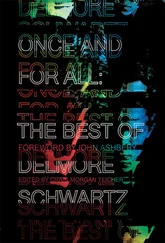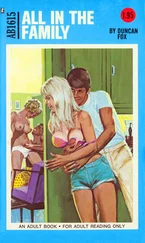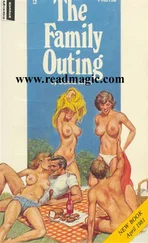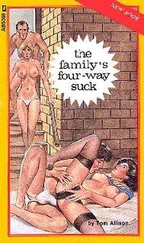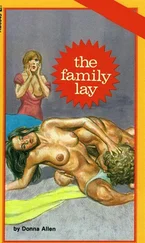
DEDICATION
For Karen Geary—thank you for looking after
my books so brilliantly for a decade!
CONTENTS
Dedication
Prologue
Chapter 1: The Killing of Malachy Dodd
Chapter 1
Chapter 1: The Killing of Malachy Dodd (continued)
Chapter 2
Chapter 2: The Perrine Compromise, and Taking Turns
Chapter 3
Chapter 3: Standards of Evidence and the Almost Hanging of Perrine
Chapter 4
Chapter 4: Pas Devant les Enfants
Chapter 5
Chapter 5: Homeschooling
Chapter 6
Chapter 6: Who Was It, Sitting on That Tree Branch?
Chapter 7
Chapter 7: A Bumcracker Dies
Chapter 8
Chapter 8: Remove All Sharp Items, Chop Down All Trees
Chapter 9
Chapter 9: No Lock on the Little Green Door
Chapter 10
“The Casting Ouch” or “The Ben Lourenco Affair”
Chapter 11
Chapter 10: You Know What? You Know What? You Know What? I Don’t Care
Chapter 12
Chapter 11: An Unlocked-House Mystery
Chapter 13
Chapter 12: The Legend of Evil Perrine
Chapter 14
Chapter 13: Who, How, When and Why
Chapter 15
Emails
Chapter 16
Chapter 17
Chapter 18
Acknowledgments
About the Author
Also by Sophie Hannah
Credits
Copyright
About the Publisher
PROLOGUE
The people I’m about to meet in my new life, if they’re anything like the ones I’m leaving behind, will ask as soon as they can get away with it. In my fantasy, they don’t have faces or names, only voices—raised, but not excessively so; determinedly casual.
What do you do?
Does anyone still add “for a living” to the end of that question? It sounds stupidly old-fashioned.
I hope they miss out the “living” bit, because this has nothing to do with how I plan to fund my smoked-salmon-for-breakfast habit. I want my faceless new acquaintances to care only about how I spend my time and define myself—what I believe to be the point of me. That’s why I need the question to arrive in its purest form.
I have the perfect answer: one word long, with plenty of space around it.
Nothing.
Everything should be surrounded by as much space as possible: people, houses, words. That’s part of the reason for starting a new life. In my old one, there wasn’t enough space of any kind.
My name is Justine Merrison and I do Nothing. With a capital N. Not a single thing. I’ll have to try not to throw back my head and laugh after saying it, or sprint a victory lap around whoever was unfortunate enough to ask me. Ideally, the question will come from people who do Something: surveyors, lawyers, supermarket managers—all haggard and harried from a six-month stretch of fourteen-hour working days.
I won’t mention what I used to do, or talk about day-to-day chores as if they count as Something. Yes, it’s true that I’ll have to do some boiling of pasta in my new life, and some throwing of socks into washing machines, but that will be as easy and automatic as breathing. I don’t intend to let trivial day-to-day stuff get in the way of my central project, which is to achieve a state of all-embracing inactivity.
“Nothing,” I will say boldly and proudly, in the way that another person might say “Neuroradiology.” Then I’ll smile, as glowing white silence slides in to hug the curved edges of the word. Nothing.
“What are you grinning about?” Alex asks. Unlike me, he isn’t imagining a calm, soundless state. He is firmly embedded in our real-world surroundings: six lanes of futile horn-beep gripes and suffocating exhaust fumes. “The joys of the A406,” he muttered half an hour ago, as we added ourselves to the long line of backed-up traffic.
For me, the congestion is a joy. It reminds me that I don’t need to do anything in a hurry. At this rate of travel—approximately four meters per hour, which is unusual even for the North Circular—we won’t get to Devon before midnight. Excellent. Let it take twenty hours, or thirty. Our new house will still be there tomorrow, and the day after. It doesn’t matter when I arrive, as I have nothing pressing to attend to. I won’t need to down a quick cup of tea, then immediately start hectoring a telecommunications company about how soon they can hook me up with WiFi. I have no urgent emails to send.
“Hello? Justine?” Alex calls out, in case I didn’t hear his question over the noise of Georges Bizet’s Carmen that’s blaring from our car’s speakers. A few minutes ago, he and Ellen were singing along, having adapted the words somewhat: “Stuck, stuck in traffic, traffic, stuck, stuck in traffic, traffic, stuck, stuck in traffic, traffic jam . Stuck, stuck in traffic, traffic, stuck, stuck in traffic, traffic jam , traffic jam , traffic jam . . .”
“Mum!” Ellen yells behind me. “Dad’s talking to you!”
“I think your mother’s in a trance, El. Must be the heat.”
It would never occur to Alex to turn off music in order to speak. For him, silence is there to be packed as full as possible, like an empty bag. The Something that he does—has for as long as I’ve known him—is singing. Opera. He travels all over the world, is away for one week in every three, on average, and loves every second of his home-is-where-the-premiere-is existence. Which is lucky. If I didn’t know he was idyllically happy with his hectic, spotlit life, I might not be able to enjoy my Nothing to the full. I might feel guilty.
As it is, we’ll be able to share our contrasting triumphs without either of us resenting the other. Alex will tell me that he managed to squeeze four important calls into the time between the airline staff telling him to switch off his phone, and them noticing that he’d disobeyed them and telling him again like they really meant it this time. I’ll tell him about reading in the bath for hours, topping up with hot water again and again, almost too lazy to twist the tap.
I press the “off” button on the CD player, unwilling to compete with Carmen , and tell Alex about my little question-and-answer fantasy. He laughs. Ellen says, “You’re a nutter, Mum. You can’t say ‘Nothing.’ You’ll scare people.”
“Good. They can fear me first, then they can envy me, and wonder if they might take up doing Nothing themselves. Think how many lives I could save.”
“No, they’ll think you’re a depressed housewife who’s going to go home and swallow a bottle of pills.”
“Abandoned and neglected by her jet-setting husband,” Alex adds, wiping sweat from his brow with the sleeve of his shirt.
“No they won’t,” I say. “Not if I beam blissfully while describing my completely empty schedule.”
“Ah, so you will say more than ‘Nothing’!”
“Say you’re a stay-at-home mum,” Ellen advises. “Or you’re taking a career break after a stressful few years. You’re weighing up various options . . .”
“But I’m not. I’ve already chosen Nothing. Hey.” I tap Alex on the arm. “I’m going to buy one of those year-planner wall charts—a really beautiful one—and stick it up in a prominent place, so that I can leave every day’s box totally empty. Three hundred and sixty-five empty boxes. It’ll be a thing of beauty.”
“You’re so annoying , Mum,” Ellen groans. “You keep banging on about this new life and how everything’s going to be so different, but it won’t be, because . . . you! You’re incapable of changing. You’re exactly the same : still a massive . . . zealot. You were a zealot about working, and now you’re going to be one about not working. It’ll be so boring for me. And embarrassing.”
Читать дальше


